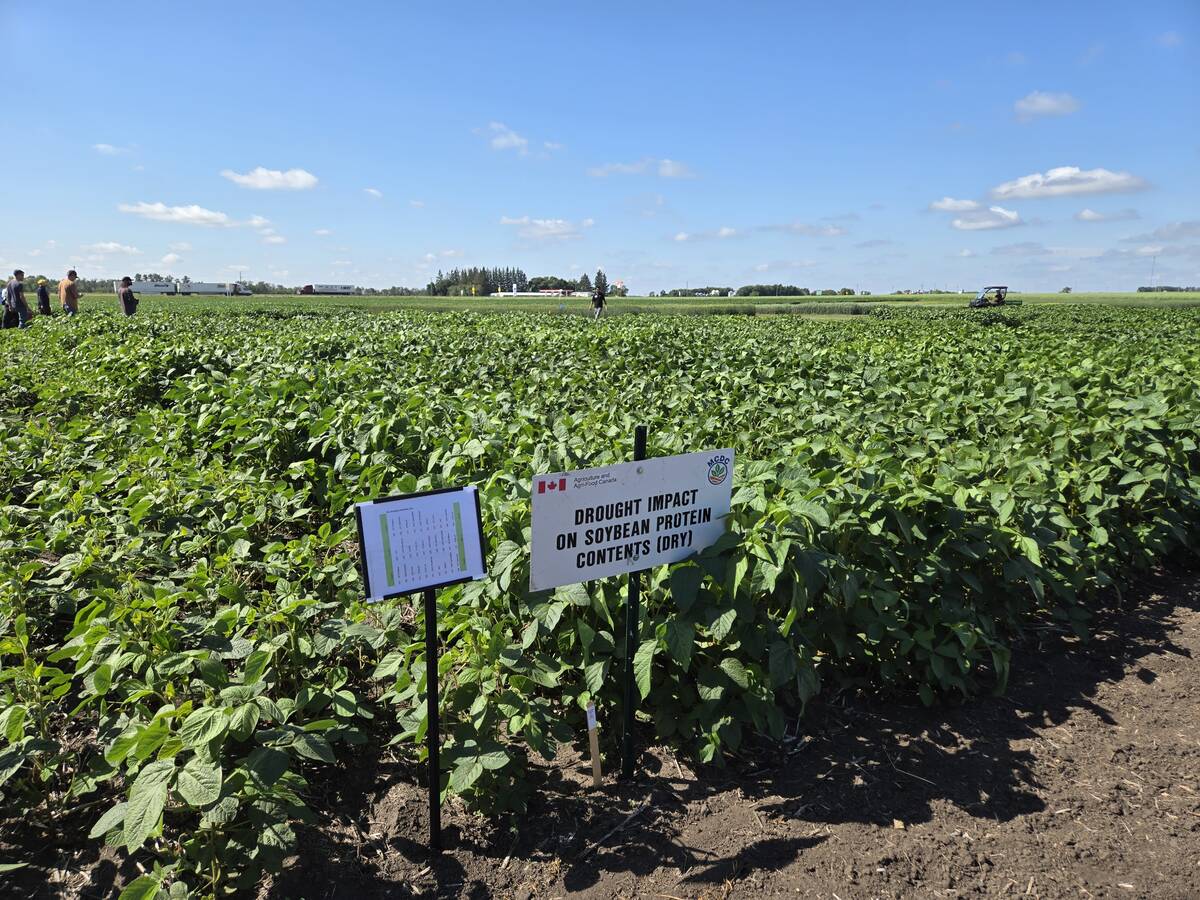In their first televised debate in English, the leaders of Canada’s four main political parties did not differ greatly on farm issues.
In fact, they seemed to form a united front of disinterest in agriculture in the two hour debate, observers say.
“It was pretty silent,” said a disappointed Marvin Shauf, second vice-president of the Canadian Federation of Agriculture.
Another CFA official quipped: “I think Martin said BSE once and Jack Layton gave about two sentences to farm issues.”
The debate was heavy with discussion about the federal sponsorship scandal, gay marriage, national unity, gun control, Canada-U.S. relations and health care, but farming only slipped in a couple of times, in discussions of other topics.
Read Also

Carberry field day looks for agriculture solutions
Manitoba farmers explored research solutions for resilient crops, perpetual agronomic issues and new kinds of agricultural products at a field day at the Manitoba Crop Diversification Centre in Carberry on Aug. 6.
The CFA has been trying to make agriculture an issue. On its website it provides the e-mail address for the leader debate organizers so that farmers can send in their questions.
The federation, which represents many large farm organizations in Canada, is considering organizing a farmers’ demonstration to occur before the leaders debate in Quebec.
Shauf said farming may not represent a large part of Canada’s population, but it is a key industry that is facing a lot of challenges.
“We would sincerely like to see agriculture’s issues treated like important national issues,” said Shauf.
Right now world trade talks are threatening to damage the interests of a number of Canadian agricultural industries, but they also offer the hope of eliminating problems that have been handicapping farm prices for years.
Shauf said the recently announced countervail duty on U.S. corn also reveals a profound structural flaw in Canadian farm policy.
“We need something pretty comprehensive to clear up the differential between Canadian and U.S. farm supports,” said Shauf.
United States subsidies for corn and soybean production have been hurting Canadian crop growers for years. This countervail simply passes the pain buck.
“Really all we’ve done here is moved the disadvantage up the value chain,” said Shauf.
“That’s not a fix. That’s a Band-Aid.”















